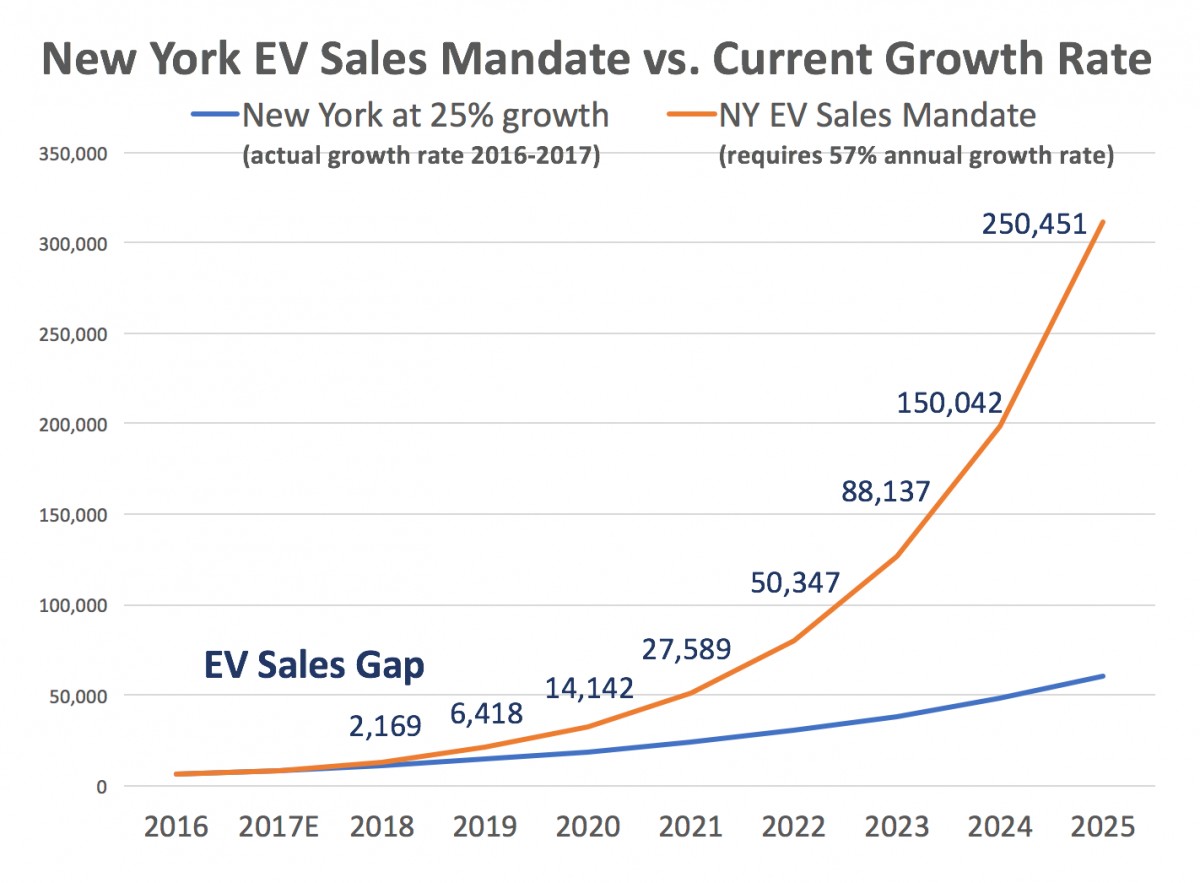Dealerships Intensify Opposition To Mandatory EV Sales

Table of Contents
Financial Concerns and Infrastructure Readiness
The transition to selling and servicing EVs presents a considerable financial burden for dealerships. Adapting to this new technology requires substantial upfront investment. This includes the significant cost of installing EV charging stations at dealerships, a necessity for both showcasing vehicles and servicing customers' charging needs. Furthermore, dealerships need to invest in specialized training for their mechanics, as servicing EVs requires different skills and tools compared to traditional internal combustion engine (ICE) vehicles.
- High cost of installing EV charging stations: The infrastructure requirements for fast chargers and adequate power supply can be prohibitively expensive for many dealerships, particularly smaller, independent ones.
- Need for specialized EV technician training programs: Training existing mechanics and hiring new ones with EV expertise involves considerable expense and time investment.
- Concerns about consumer readiness and charging infrastructure limitations: Many areas lack the public charging infrastructure to support a large influx of EVs, making consumers hesitant to adopt them. This impacts dealer profitability as unsold EVs tie up capital.
- Potential for unsold EV inventory due to low demand: If the market isn't ready for the mandated volume of EVs, dealerships risk being stuck with unsold inventory, leading to financial losses.
Consumer Demand and Market Readiness
While EV sales are growing, consumer demand is still far from universal. Several factors limit widespread adoption:
- Price remains a major barrier to entry for many consumers: EVs generally have a higher purchase price compared to comparable ICE vehicles, limiting accessibility for a large segment of the population.
- Range anxiety continues to be a concern for potential EV buyers: Concerns about limited driving range and the availability of charging stations remain a significant deterrent.
- Limited model availability and long wait times can deter consumers: The selection of EV models is still relatively limited, and many popular models have extended waiting lists.
- Marketing and consumer education are essential for successful EV adoption: Many consumers still lack a complete understanding of EV technology and its benefits, hindering widespread adoption. A concerted effort in consumer education is vital.
Enforcing mandatory EV sales quotas prematurely risks oversaturating the market before consumer demand catches up, potentially causing significant financial losses for dealerships and hindering the overall transition to EVs.
Dealership Profitability and Business Models
Mandatory EV sales quotas directly threaten the profitability of dealerships. Currently, profit margins on EVs are generally lower than on ICE vehicles, due to factors like higher manufacturing costs and government subsidies that affect pricing. This, coupled with increased operational costs associated with EV sales (charging infrastructure, specialized training, etc.), poses a significant challenge. Balancing the sales of EVs with the continued demand for ICE vehicles adds further complexity, forcing dealerships to make difficult choices about inventory and resource allocation.
- Lower profit margins on EVs compared to ICE vehicles: The current economic model for EV sales often results in lower profitability for dealerships compared to ICE vehicle sales.
- Increased operational costs associated with EV sales and service: Dealerships face considerable costs in upgrading facilities, training staff, and managing EV-specific inventory.
- Potential for decreased overall sales volume if consumers are not ready for a complete EV shift: Forcing a rapid transition could reduce overall sales if consumers are not ready to buy EVs en masse.
- Need for government support and incentives to mitigate financial risks for dealerships: Governments should provide financial support and incentives to help dealerships navigate the transition to EVs without crippling their businesses.
Lobbying Efforts and Political Implications
Dealership associations are actively lobbying against mandatory EV sales quotas, arguing that a more gradual and market-driven transition is necessary. This creates a significant political conflict between the government's environmental goals and the economic concerns of a powerful industry. The outcome of this conflict will shape the future of the automotive industry and the speed of EV adoption.
- Dealership associations are actively lobbying against mandatory quotas: Industry groups are exerting considerable political pressure to influence policy.
- Political pressure may influence the implementation timelines of EV mandates: The political debate will significantly impact the pace of EV adoption.
- Collaboration between government and industry is crucial for a smooth transition: Open dialogue and cooperation are vital to finding solutions that address both environmental and economic concerns.
- Finding a balance between environmental goals and economic realities is key: A successful transition requires considering the perspectives of all stakeholders, including dealerships and consumers.
Conclusion: Navigating the Future of Mandatory EV Sales
The opposition to mandatory EV sales from dealerships highlights crucial concerns about financial viability, market readiness, and the disruption of existing business models. A balanced approach is essential, one that considers both environmental goals and the economic realities faced by dealerships. Ignoring these concerns risks undermining the overall success of the EV transition. We need a collaborative effort, including government incentives and support, to ensure a smooth transition to a sustainable transportation future. To learn more about the complex issues surrounding mandatory electric vehicle sales, explore further resources on the topic. What do you think is the best approach to achieving widespread EV adoption?

Featured Posts
-
 Kho Khan Va Thanh Qua Hanh Trinh Cong Nhan Dien Luc Mien Nam O Du An 500k V Mach 3
Apr 30, 2025
Kho Khan Va Thanh Qua Hanh Trinh Cong Nhan Dien Luc Mien Nam O Du An 500k V Mach 3
Apr 30, 2025 -
 Los Angeles Palisades Fire Impact On Celebrity Homes Full List
Apr 30, 2025
Los Angeles Palisades Fire Impact On Celebrity Homes Full List
Apr 30, 2025 -
 Adding To Manitobas History New Hudsons Bay Company Artifacts
Apr 30, 2025
Adding To Manitobas History New Hudsons Bay Company Artifacts
Apr 30, 2025 -
 Pacers Vs Cavs Game Schedule How To Watch Predictions And Analysis
Apr 30, 2025
Pacers Vs Cavs Game Schedule How To Watch Predictions And Analysis
Apr 30, 2025 -
 Une Star Nba Met Sa Carriere Et Sa Vie Familiale En Peril Avec Ses Celebrations Aux Armes A Feu
Apr 30, 2025
Une Star Nba Met Sa Carriere Et Sa Vie Familiale En Peril Avec Ses Celebrations Aux Armes A Feu
Apr 30, 2025
